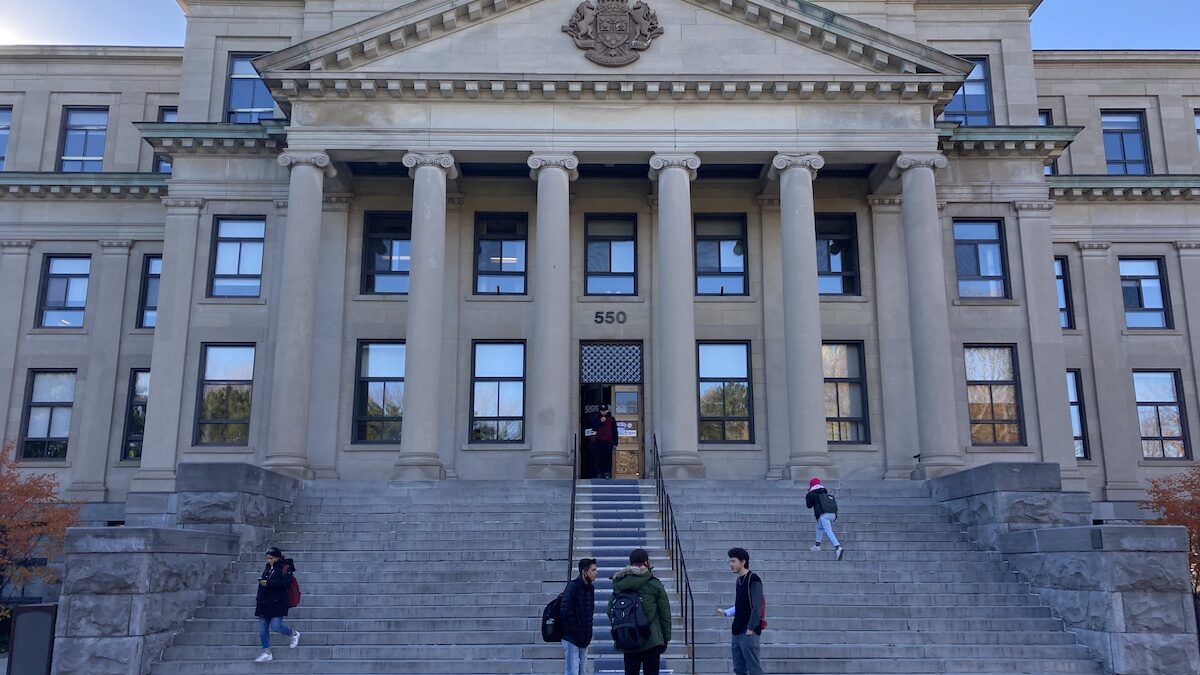The uOttawa chapter of Faculty for Palestine (F4P) is urging the school to honour the recently released advisory opinion of the International Court of Justice (ICJ) that found Israel’s occupation of the Palestinian Territories violates international law.
In a statement, F4P uOttawa called on the university to divest from all corporations directly involved in the occupation and cut ties with Israeli academic institutions.
The ICJ’s opinion states that Israel’s continued presence in Palestinian territory is unlawful, and that its systemic abuse and discrimination against Palestinians amounted to apartheid.
F4P uOttawa also demanded the university adopt the Arab Canadian Lawyers Association (ACLA) definition of anti-Palestinian racism, which says that it is “a form of anti-Arab racism that silences, excludes, erases, stereotypes, defames or dehumanizes Palestinians or their narratives.”
F4P uOttawa also condemned the university administration for vilifying the student encampment and portraying the encampment as violent and a threat to the safety of the university community.
“The university tried to use a very narrow display and understanding in order to ignore what was the overall goal of the students’ encampment. The overall was to get the university to divest from genocide apartheid against the Palestinian people,” said Baljit Nagra, an associate professor of Criminology at uOttawa.
“The ICJ’s ruling is very important historically. The university needs to take that into account in their own policies.”
UOttawa President and Vice-Chancellor Jacques Frémont condemned the students for the state they left the site outside the Tabaret Hall, accusing them of conducting “considerable damage” and calling it “acts of vandalism” in a statement released after the end of the encampment.
Frémont also said the encampment was considered an illegal occupation and “is not freedom of expression.”
Nagra also said that the ICJ confirmed what the students, faculty, and staff have demanded for months. She also pointed out the university has to re-visit and re-examine its policies.
“Academic institutions don’t see themselves as complicit in all these issues of racism, systemic racism, and discrimination that we teach,” said Nagra, added, “But the universities do not understand that they themselves are complicit in the same process, and they have to address that themselves, just like any other institution in Canada.”
Professors and students told Capital Current the university did not accept the engagement of faculty in its negotiations with encampment organizers although the F4P uOttawa and other professors were part of the encampment from the beginning.
F4P uOttawa was created in the wake of students’ encampment in Tabaret Lawn. Professors and staff decided to organize themselves and join their students. Faculty participated in discussions, teaching, lectures, book clubs, and art activities.
After that, the chapter of F4P Ottawa was established to include people from Carleton University, and Saint Paul University.
F4P is a national organization committed to advancing the struggle for Palestinian liberation, justice, and equality through the academic sector. It was formed in 2008.
Associate Professor of Anthropology Karine Vanthuyne said F4P uOttawa will continue to support the students in their next steps and urge the university to fulfill its duty as an academic institution.
“Students inspire us to do more, and to mobilize ourselves,” said Vanthuyne.
“We will continue to advocate further these demands to disclose and divest through all means at our disposal.”
The university did not respond to requests for comment.




